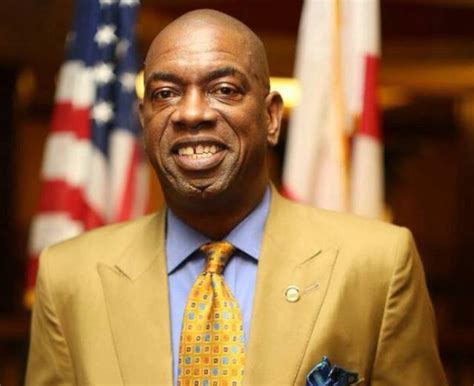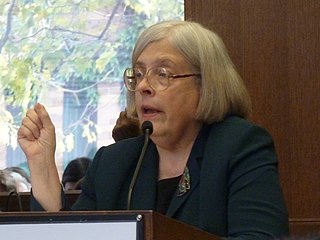Top 921 Retirement Quotes & Sayings - Page 16
Explore popular Retirement quotes.
Last updated on April 17, 2025.
Lukewarm people do not live by faith; their lives are structured so they never have to. They don't have to trust God if something unexpected happens- they have their savings account. They don't need God to help them- they have their retirement plan in place. They don't genuinely seek out what life God would have them live- they have life figured and mapped out. They don't depend on God on a daily basis- their refrigerators are full and, for the most part, they are in good health. The truth is, their lives wouldn't look much different if they suddenly stopped believing in God.
In your 20s, crises tend to be about whether you are making the correct decisions for the rest of your life, namely in your job and relationship. In your 30s, work-related issues and break-ups feature prominently. In your 40s, for women bereavement is often an issue. For men, it is still to do with their job but it has moved to "Holy crap, I've got a lot to do". In your 50s, you get features of both early and later life crises - bereavement and ill health. And that continues in your 60s, with retirement-related issues and heightened awareness of mortality.
Retirement is a very subjective thing. There are guys I know who retire and they're very happy and they never miss work at all. I can't see myself retiring and fondling a dog every day. I like to get up and work and go out. I have too much energy or too much nervous anxiety or something. So I don't see myself retiring. Maybe I will suddenly get a stroke or a heart attack and I will be forced to retire, but if my health holds out I don't expect to retire.
You know what they want? They want obedient workers. Obedient workers, people who are just smart enough to run the machines and do the paperwork. And just dumb enough to passively accept all these increasingly shittier jobs with the lower pay, the longer hours, the reduced benefits, the end of overtime and vanishing pension that disappears the minute you go to collect it. And now they're coming for your Social Security money. They want your f**kin' retirement money. They want it back so they can give it to their criminal friends on Wall Street.
The American middle class, it seems to me, is looking to politicians now to satisfy a pretty basic - and urgent - level of need. Yet people in the upper middle class - with their excellent health benefits, schools, salaries, retirement plans, nannies and private afterschool programs - have journeyed so far from that level of need that, it often seems to me, they literally cannot hear what resonates with the middle class. That creates a problematic blind spot for those who write, edit or produce what comes to be known about our politicians and their policies.
When top executives get huge pay hikes at the same time as middle-level and hourly workers lose their jobs and retirement savings, or have to accept negligible pay raises and cuts in health and pension benefits, company morale plummets. I hear it all the time from employees: This company, they say, is being run only for the benefit of the people at the top. So why should we put in extra effort, commit extra hours, take on extra responsibilities? We'll do the minimum, even cut corners. This is often the death knell of a company.
I have known not a few men who, after reaching the summits of business success, found themselves miserable on attaining retirement age. They were so exclusively engrossed in their day-to-day affairs that they had no time for friend-making.... They may flatter themselves that their unrelaxing concentration on business constitutes patriotism of the highest order. They may tell themselves that the existing emergency will pass, and that they can then adopt different, more sociable, more friendly habits. [But] such a day is little likely to come for such individuals.
If you do not have at least an eight-month emergency fund, and you think there's a probability you could loose your job - and it's not just losing your job; you could be in a car accident, get sick - continue to pay the minimum on your credit card every month. Everything beyond that needs to go to establish an emergency fund. And if you have an emergency fund saved, then fund your retirement account before paying down credit card debt.
The information glut has become a ruling cliche. As all resources - from energy to information - become more abundant, the presure of economic scarcity falls ever more heavily on one key residual, and that single shortage looms ever more stringent and controlling. The governing scarcity of the information economy is time: the shards of a second, the hours in a day, the years in a life, the latency of memory, the delay in aluminum wires, the time to market, the time to metastasis, the time to retirement.
We will not wish we had made more money, acquired more stuff, lived more comfortably, taken more vacations, watched more television, pursued greater retirement, or been more successful in the eyes of this world. Instead, we will wish we had given more of ourselves to living for the day when every nation, tribe, people, and language will bow around the throne and sing the praises of the Savior who delights in radical obedience and the God who deserves eternal worship.
The idea of the book ["The Japanese Lover"] came in a conversation that I had with a friend walking in the streets of New York. We were talking about our mothers, and I was telling her how old my mother was, and she was telling me about her mother. Her mother was Jewish, and she said that she was in a retirement home and that she had had a friend for 40 years that was a Japanese gardener. This person had been very important in my friend's upbringing.
BYU takes on defending national champion Florida State in the Pigskin Classic in Jacksonville, Fla., eight days after announcing that the 2000 season would be his last before retirement: I do know this, that I'm finally a little bit more relieved than I've been for some time. Patti (his wife) and I have talked about it a lot and came to that conclusion (to retire). I had a feeling of serenity, if you will. In fact, I was feeling so serene that I put in a film of Florida State, and that got me out of that mood in a hurry.
Your life is right now! It's not later! It's not in that time of retirement. It's not when the lover gets here. It's not when you've moved into the new house. It's not when you get the better job. Your life is right now. It will always be right now. You might as well decide to start enjoying your life right now, because it's not ever going to get better than right now-until it gets better right now!
Since her retirement from teaching Miss Beryl's health had in many respects greatly improved, despite her advancing years. An eighth-grade classroom was an excellent place to snag whatever was in the air in the way of illness. Also depression, which, Miss Beryl believed, in conjunction with guilt, opened the door to illness. Miss Beryl didn't know any teachers who weren't habitually guilty and depressed-guilty they hadn't accomplished more with their students, depressed that very little more was possible.
It's a peculiar thing about liberals. When it comes to middle-class people who are fully capable of caring for themselves, liberals seek to undermine their independence in every way possible. With seductive 'entitlements' like guaranteed retirement, health care, nutrition, education, and jobs, liberals attempt to lure the middle class into dependence on the state. But when it comes to those who are truly incompetent, those whose mental afflictions render them unable to manage their lives at all, liberals are suddenly transformed into absolutists for personal autonomy.
The system is not intended as a substitute for private savings, pension plans, and insurance protection. It is, rather, intended as the foundation upon which these other forms of protection can be soundly built. Thus, the individual's own work, his planning and his thrift will bring him a higher standard of living upon his retirement, or his family a higher standard of living in the event of his death, than would otherwise be the case. Hence the system both encourages thrift and self-reliance, and helps to prevent destitution in our national life.
The simple index fund solution has been adopted as a cornerstone of investment strategy for many of the nation's pension plans operated by our giant corporations and state and local governments. Indexing is also the predominant strategy for the largest of them all, the retirement plan for federal government employees, the Federal Thrift Savings Plan (TSP). The plan has been a remarkable success, and now holds some $173 billion of assets for the benefit of our public servants and members of armed services.
Why do Americans find government so baffling and irritating-even though many of us depend on public programs for a secure retirement, an affordable mortgage, or a college loan? In this timely and important book, political scientist Suzanne Mettler explains how the United States has come to rely on hidden, indirect policies that privilege special interests but puzzle regular citizens. American democracy can do better, and she shows how. Politicians and the public alike have much to learn from her brilliant and engaging analysis.
Money actually becomes even more difficult than other things because it's very hard to imagine what the benefits are to saving. So, imagine that you see a new bicycle, a new pair of shoes, or something today. You know exactly what you are giving up if you are not buying it, what are you gaining in the future if you are not getting it. So, you are giving up the bicycle today, what is it in the future? What will happen if you send another $1,000 to your retirement fund? What difference will it make? It is very, very hard to figure out.
We think that life is about get the girl, get the guy, get the car, get the job, get the house, get the kids, get the better job, get the better car, get the better house, get the promotion, get the office in the corner, get the kids on their way, get the grandkids, get the retirement watch, get the cruise tickets, get the illness, and get the heck out. That's it. That's a good life. But life has nothing to do with any of that. That is not our purpose in living. That is not the Agenda of the Soul.
One of my favorite pieces of advice about being a writer came from a very formative teacher I had as an undergraduate, named John Hersey. On our last day of class together, which was also John Hersey last day before retirement, he said, "Remember, the world doesn't need any new writers." Which at first didn't seem like great advice, but when you unpacked it, it was really that it's not enough to be confident in what you do; be conscious of bringing something to the world of readers and writers that it hasn't seen before. Something idiosyncratic.




















